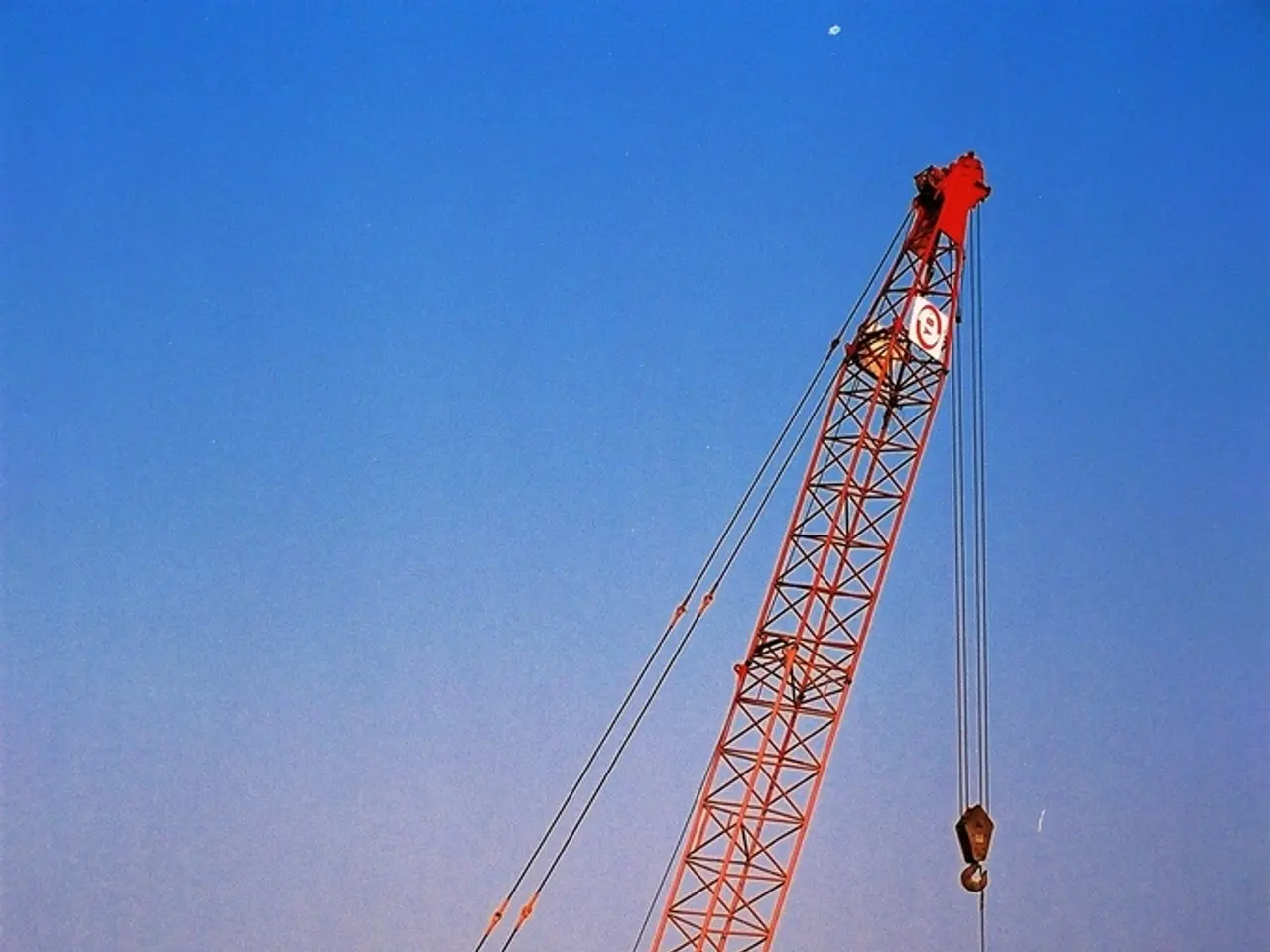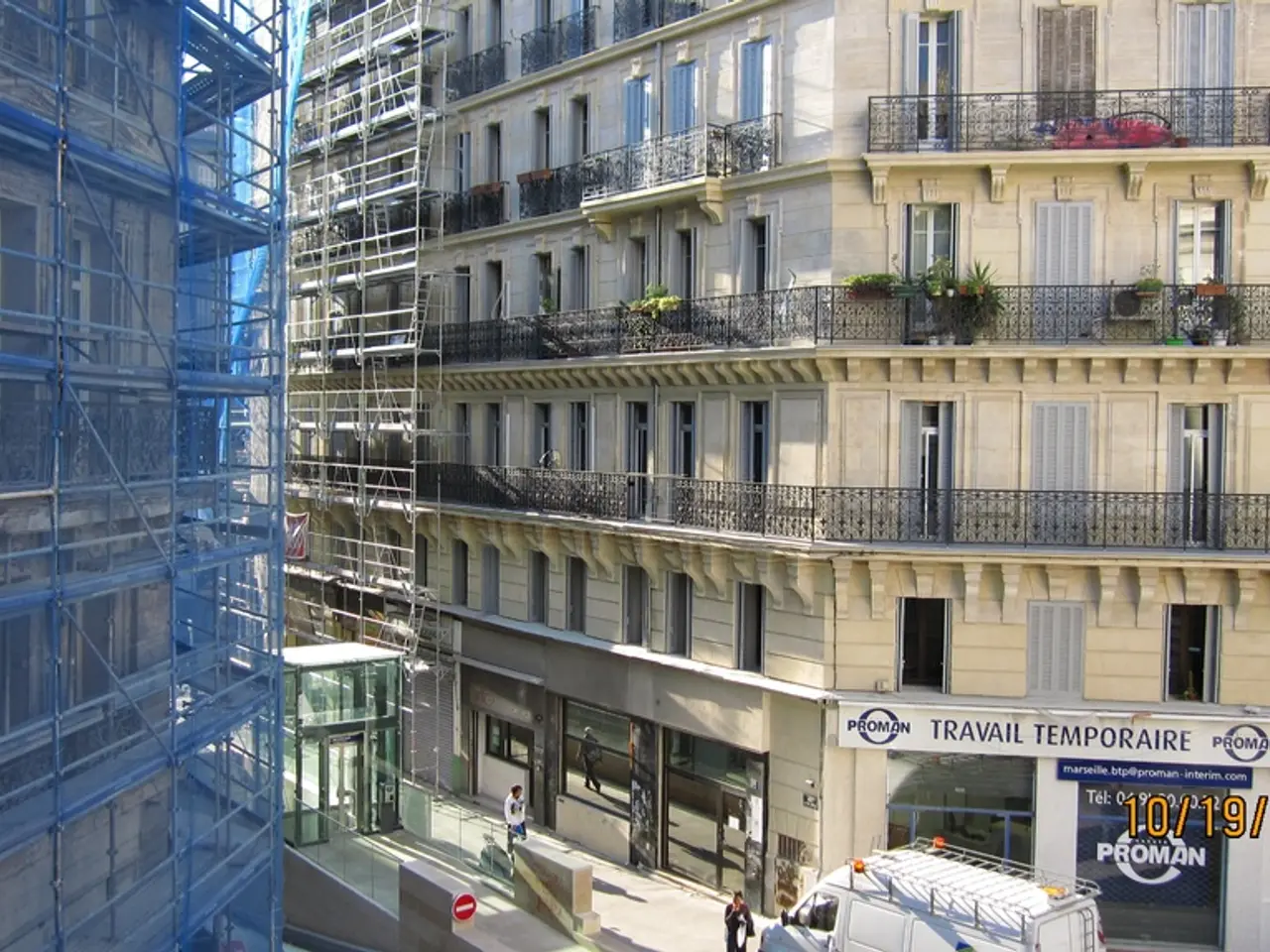Union IG Metall Koblenz advocates for a distinct, sustainable industrial pathway and a robust, thriving craftsmanship sector.
German Workers Demand Clarity for Future-Proof Industry and Strong Craftsmanship
In a rally on March 26, IG Metall Koblenz called for clear political direction and employer responsibility to secure the industrial future of Germany and maintain solid craftsmanship in the region. More than 80,000 IG Metall members across the nation, among them several hundred from Koblenz, expressed support at action days held on March 15 in various cities. Additionally, over 2,000 employees in the Koblenz region backed the ongoing IG Metall petition with the slogan "My job. Our industrial nation. Our future!"
"The time for future-oriented and proactive politics is pressing, and we feel this in our region too," said Ali Yener, the First Representative of IG Metall Koblenz. "Business model breakdowns and corporate insolvencies show the importance of transformation strategies and political support, even in our region. A reliable, predictable business environment is essential. A fluctuating political strategy delays industrial restructuring and puts companies in the metal and electrical industry at risk," added Yener.
IG Metall has been advocating for necessary political adjustments for some time now. "In addition to automotive suppliers, there are also energy-intensive businesses in the region. We have been raising critical issues for almost two years, including reducing energy costs, increasing investments, promoting industrial restructuring reliably - and financing it fairly and sustainably," said Yener. "Only then will we secure and expand the industry and quality jobs in Germany for the future."
According to Yener, employers also bear responsibility for securing the German industrial sector. The transformation affects the IG Metall district of Mitte particularly, as more than 50 percent of jobs in Hesse, Rhineland-Palatinate, Thuringia, and Saarland depend directly or indirectly on the automotive industry and its suppliers. The Saarland is also heavily influenced by the steel industry.
Addressing the issue of securing skilled labor for the future of industry and craftsmanship, Yener stated that any debate on working hours in the upcoming coalition negotiations between CDU and SPD would be detrimental. "Already today, 44 percent of employees in Germany work overtime, sometimes without compensation. Already today, many complain about increasing workload. Especially in companies without effective employee representation, we must expect that such regulations will be misused," said Yener. "We must maintain our competitiveness in Germany. That doesn't come from overworked and sick employees who see no perspective for their company. On the contrary, we need motivated employees who can fulfill their personal commitments and remain healthy until retirement. This is best achieved with fair and secure collective working conditions and strong co-determination in the company."
Clarissa Bader, the Collective Agreement Secretary of IG Metall Mitte, spoke on the necessity and ideas for the future development of collective agreements. "We are expanding our tools for securing employment. Future collective agreements are an instrument to shape the future of companies and achieve genuine employment security," Bader said. She also highlighted the importance of employee participation and input through surveys, such as those conducted by IG Metall.
Stefanie Majer, the Political Secretary of IG Metall Koblenz and responsible for the automotive craft sector, noted the immediate need for skilled labor in the craft sector. "The workload in car dealerships and workshops is escalating, while many employees have changed jobs in recent years, including some shifting from the craft sector to industry," Majer stated.
IG Metall's demands from the future coalition include:
- Opposition to extending working hours by scrapping the 8-hour day in favor of a weekly maximum working time limit.
- Stable, consistent framework conditions for employees, suppliers, manufacturers, and customers.
- Competitive electricity prices for industry.
- Hefty investments in charging infrastructure and subsidized charging electricity. Targeted development of value chains in the electrical industry, from research funding to manufacturing to battery recycling.
- Creation of green lead markets and protective measures against climate-damaging steel imports.
- The German industry, particularly the metal and electrical sector, requires a reliable and predictable business environment to ensure its future, as argued by Ali Yener, the First Representative of IG Metall Koblenz.
- In line with their advocacy for political adjustments, IG Metall has raised concerns about reducing energy costs, increasing investments, and promoting industrial restructuring fairly and sustainably, as stated by Ali Yener.
- The importance of policy-and-legislation on general-news topics, such as working hours and skilled labor, has been emphasized by IG Metall members, with Clarissa Bader, the Collective Agreement Secretary of IG Metall Mitte, highlighting the necessity and potential development of future collective agreements.








